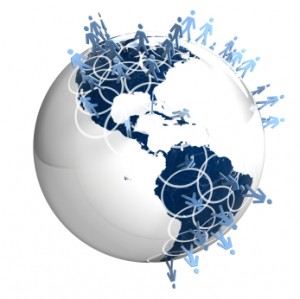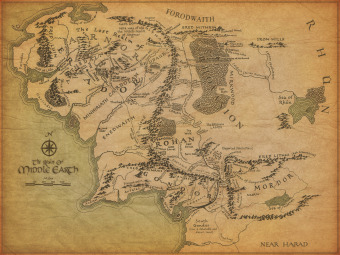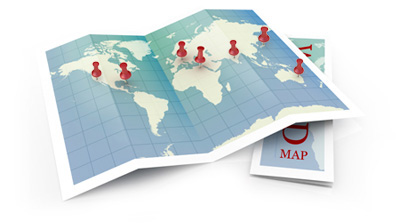 2 Comments |
2 Comments |  Greg Bledsoe MD on
Greg Bledsoe MD on  Humanitarian Medicine +
Humanitarian Medicine +  International Medicine +
International Medicine +  Wilderness Medicine
Wilderness Medicine Crossing International Borders As A Physician
 If you’ve never had the pleasure of crossing a border into a remote part of a developing country, you’re in for a real treat. Some of the best travel stories-- both good and bad-- occur at border crossings.
If you’ve never had the pleasure of crossing a border into a remote part of a developing country, you’re in for a real treat. Some of the best travel stories-- both good and bad-- occur at border crossings.
While most crossings involve little more than a little eye contact and a perfunctory paperwork inspection, things can turn bad in a hurry for those who are unprepared. Stories abound on the international travel circuit of travelers being detained—or worse—when attempting to cross a border in a less-than-appropriate fashion. If you’re going to be traveling in remote, undeveloped regions, it’s best to have a plan for handling the crossing of national borders.
For many Westeners—especially the inexperienced physician traveler—the idea that someone in a country that they’re “trying to help” might not believe their good intentions seems preposterous. Regardless of your intentions, however, you can run into problems.
You might be the nicest, most altruistic person in the world but look at it from the perspective of a border guard: you’re foreign, you probably don’t speak the native language, you might appear rude due to your dress or mannerisms, and if you’re a medical officer you’re probably carrying lots of suspicious-looking pills, tablets, instruments, and other doo-dads.
In the first chapter of our Expedition & Wilderness Medicine textbook, Dr. Howard Donner has some helpful tips for dealing with border crossings. I’m quoting Howard here at length:
Don’t carry white powder in zip lock bags. As obvious as this may sound, it is amazing how tablets of all sorts tend to break down with humidity and then slowly disintegrate in zip lock bags. A poorly identified zip lock bag, with pulverized white medicine inside, presents a rather suspect impression to a customs official. Try to be meticulous with your drugs. Place your medicines in clearly labeled zip lock bags or medicine vials. If you choose to use zip locks, protect them from physical damage inside of a sturdy kit or case. The more organized the kit looks, the less dubious the custom’s officials seem to look.
Carry a copy of your medical license. Showing a customs official a photocopy of your medical license carries a bit more credibility than stating, “but I’m a doctor, really."
Present a letter of introduction. Customs officials seem to love embossed stationery or letters embellished with gold seals. These blank forms can be easily purchased through most office supply stores. Even if you’re not traveling with the National Geographic Society, you can print up your own letter on embossed stationary. Introduce yourself as the expedition doctor for the “2008 blank blank expedition”. As long as your name is on the letter, along with a signature from the sponsoring foundation, (such as a friend of yours), custom officials seem to relax.
-Dr. Howard Donner, Chapter One: The Expedition Physician in Expedition & Wilderness Medicine
In addition to medical kit issues, another big problem with border crossing revolves around trying to exit a country with interesting items of question. Remember that really cool “antique” the local hustler sold you outside the tourist area? Turns out it’s a stolen artifact from the local museum. Be wary of buying local valuables that are sold in a surreptitious manner. At a border it will be you, not the local “entrepreneur,” who will be charged with theft and attempts to export a national heirloom.
Also, remember that many animal products such as furs or trophies (especially of endangered species) cannot be taken home as well as most alcohol, plants, food items, and some forms of tobacco. If there’s any question, it’s best not to attempt to transport it. Just leave it alone and tell stories about “the one that got away” to your friends when you’re home safe and sound.
Even with all the proper documentation and appropriate behavior, frustrating things can still happen when attempting to cross a border. Some seasoned travelers recommend having a few small "give away" items such as cigarettes, t-shirts of your favorite ball club, small candies, or other light-hearted gift items in your luggage to help sooth escalating tempers. It's amazing what a small gift accompanied by a smile and a calm demeanor can do to improve a difficult situation.
If things still go from bad to worse, the best advice is always be respectful, keep your eyes open and your mouth shut, and do not attempt to bluff your way through with threats or angry gestures. Remember, this is not your home turf, you are not in charge, and you are very much at the mercy of the nearest supervisor in the area. All your impressive credentials and academic publications won't matter at all to your cellmate in the local jail, and in this situation, Miranda rights certainly do not apply.
Border crossings are a normal part of international travel. By keeping a few principles in mind, these events can become routine and fun rather than frustrating and frightening.
 Email This Article tagged:
Email This Article tagged:  Expedition Medicine,
Expedition Medicine,  International Emergency Medicine,
International Emergency Medicine,  Travel,
Travel,  Wilderness Medicine |
Wilderness Medicine |  Feb 19, 7:00 AM
Feb 19, 7:00 AM 








